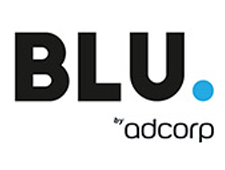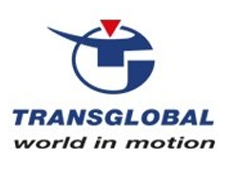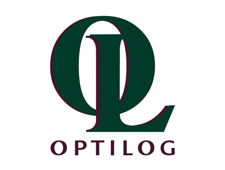RHEINMETALL DENEL MUNITION: A Partner with ‘Special Responsibility’
As a leading manufacturing business, Rheinmetall Denel Munition continues to provide opportunities and innovation in South Africa. The company is busy with multiple multi-million Rand projects, and is showing the strength needed to achieve desired objectives in tough market conditions. CEO Jan-Patrick Helmsen tells Enterprise Africa more.
The world of warfare is changing. Like the rest of the economy, digitisation is shifting the defence business technologically. National security is now, more than ever before, a multifaceted industry and requires solutions across a wide spectrum. In Southern Africa, while physical deterrent and visible displays of strength are still commonplace, spending on defence has been vacillating.
Since 1992, Denel has been a dominant force in South African national security, equipping the South African National Defence Force (SANDF) and other security organisations with hardware, technology, and other products. But change saw Denel’s position weaken. Reaching concerning levels in 2015, financial worries saw the state-owned manufacturer sell off more divisions and restructure, following a period of market uncertainty where customer contracts, supplier relationships and the very nature of the business was under fire. Denel Munitions – the specialist manufacturer of large- and medium-calibre ammunition and world leader in the field of artillery, mortar and infantry systems as well as plant engineering – attracted new shareholding in 2008 and Rheinmetall Denel Munition (RDM) was born. Ever since, the company has been modernising, digitising, rebuilding and reshaping to better serve national security forces in South Africa and export markets.
From Officer in the German armed forces to Chief Executive Officer at RDM, Jan-Patrick Helmsen is a Rheinmetall veteran and has held positions across the group. He moved to South Africa to head up RDM in 2019 and is targeting continued growth on several fronts as the company negotiates ongoing periods of change.
START WITH A BANG
“Our core business is defence but the overarching thing is that we are a chemical manufacturing company specialised in producing explosives on five sites in South Africa. From the explosives, we produce ammunition as our core product. We handle development, design, manufacturing, and we have the full lifecycle process for our industry. We also have a business unit for industrial engineering where we build industrial plants worldwide,” he tells Enterprise Africa.
“Since our cooperation began, we have been growing and the relationship has become very successful. Annual turnover is now ten times higher than before, showing that if, as a State and country, you partner with a proper business you can grow.
“From an annual turnover perspective, we were doing well. We reached our targets for last year, but we had challenges with South Africa in a harsh level five lockdown.”
After just nine months at RDM, Helmsen found the business closed. Covid had forced the shutdown, and the company’s progress halted.
“The defence industry and our company were not marked as essential so we had to close for almost three months. As management, we decided to pay our people with the support of our shareholder in Germany. We believe this was our responsibility as an employer.”
RDM was quick to respond to the situation. The company put its employees first and foremost, and as they stayed home during the lockdown, RDM went about ensuring its partner were safe. The company donated 6000l of hand sanitiser to the SANDF, dished out 2000 packages of hygiene products to local families, and delivered 500 bottles of hand disinfectant to children’s hospitals.
“We are also contributing with the vaccine rollout,” highlights Helmsen. “Our business has five sites in South Africa and we started, alongside Clicks, using our doctors and their doctors to give vaccines to our staff and others on site.” This included contractors and other visitors.
At Group level, the company already manufactured PPE products, but it increased its output and order levels to suit the needs of customers and businesses within the group, to help protect as many people as possible.
SOLID PARTNER
In such a live environment, it is imperative for RDM to build lasting, trust-based relationships. To date, the company has achieved this and Helmsen views clients from far and wide as true partners – involved in all aspects of development and deployment.
“RDM has a domestic arm where we are the ammunition supplier for South Africa and SANDF – this is our home market and where we come from,” he confirms. “We also have a global footprint and more than 85% of our annual turnover comes from international business. We service markets in Europe, UK, Australia, USA, Asia and the Middle East.
“In the defence industry, you have long-term partnerships. Your customers are always governments. We don’t have B2B or B2C relationships – we only sell to the Ministries of Defence. That means that, even if there is an unexpected impact, these partnerships can secure the business.
“We are not only a supplier, we are a partner to soldiers and police worldwide,” he adds. “This partnership is really important as we are part of national security. You always need police, you always need politicians, you always need forces, and you need the defence industry to secure national security in your country. This is how I see our role – to be a partner of customers with a special responsibility; we are selling security. If people are using our products, it means they are under threat; they need to defend themselves or use deterrents – that is a unique responsibility. I see this role not as a supplier but as a partner and that is what separates us from others. We start from the design and go through prototyping, manufacturing, and full lifecycle support for our customers.”
Currently, South Africa is ranked by Global Firepower as the 32nd greatest military power in the world, behind Egypt (13th) and Algeria (27th) in Africa. The USA, Russia and China lead the rankings, based on more than 50 different contributing factors.
The United Nations (UN) and the African Union (AU) both view South Africa as the preliminary diplomatic peacekeeping force in Africa, having completed several missions on the continent over past decades.
In July, South Africa deployed more than 1400 troops in Mozambique to help fight insurgents linked to Islamic State. In the northern part of the country, in the Cabo Delgado province, violent extremists have been creating uneasy circumstances for some time and the SADC authorised military intervention. Clearly, there is an ongoing need for military action in Southern Africa, and this reinforces the need for a quality value chain and continued development of the industry which, at its heart, is a skills-based manufacturing concern.
“We have 1300 people, all located in South Africa. We also have a large number of interns which we are very proud of. Those 90 interns are young people who come from university or other educational routes and they see our company through a training programme before deciding if this is the right future for them,” says Helmsen.
COMPLEX FUTURE
Going forward, the future of RDM remains in South Africa, and remains focussed on the manufacturing of products using its chemical expertise. Technology has dramatically disrupted the defence industry and, according to PwC, “emerging cyber, electromagnetic and biowarfare threats are adding to the urgency and changing the nature of defence… New competition, increased digitisation and accelerated procurement timelines will continue to weigh on incumbent players. To succeed in uncertain times, leadership teams must plot strategy to anticipate changes, rather than reacting to them.”
For Helmsen, searching for new opportunities began long ago. Bullets can’t be made digital and so the company is already busy with projects away from defence, and is contributing with its shareholder to a concept that will unlock major value in the future.
“We have substantial business with the South African mining industry. We produce explosives for the mining industry, and we are also producing aluminium sulphate for water purification in the Western Cape. Without RDM, no one in the Western Cape drinks water.
“We are looking into hydrogen where there is a significant push in Europe, but also in South Africa as the world wants to go green and green hydrogen is a significant future business. As a chemical company, we have substantial competencies in developing and prototyping. We can build hydrogen plants, we are investing in the storage of hydrogen, and we have projects where we are looking at integrating hydrogen in other complex systems,” he details.
The Rheinmetall group announced in September that it was pressing ahead with its hydrogen strategy, partnering with government departments in Germany to prioritise mobility-based applications.
“Hydrogen is a key element in the ongoing transition to a climate-neutral future energy supply and the climate-neutral transformation of industry. Experts therefore see substantial global growth potential for the production, storage, distribution and use of hydrogen. A projection based on the goals of the Paris Agreement suggests that annual market volume could expand from the current figure of around €5 billion to over €100 billion by 2030,” the company states.
In terms of its core product and historic focus, Helmsen has no intention of losing market share.
“We are the market leader in ammunition and indirect fire from an artillery perspective. We always try to defend our pole position in the market with the largest range in the market,” he says.
In February, the company announced a deal with the South African military that would see RDM manufacture conventional 60mm and 60mm long-range mortar ammunition including high explosives, practice, illumination and smoke burst screening smoke mortar cartridges. This was the second order for 60mm products in the last 12 months. Delivering over the next quarter, RDM’s products will help Infantry and Special Forces troops deployed in counterinsurgency operations to engage targets successfully even in difficult terrain and built-up areas.
In February, the company received a R40 million order from an overseas customer for newly developed 110 lb/50 kg aircraft bombs as well as high fragmentation variants of its Mk 80 series warheads, including accessories and fuses. These products are designed for precision strikes from the air against vehicles and stations on the ground.
Clearly, there is need in the industry for RDM’s traditional range, albeit tweaked and improved for modern applications. But innovation is at the heart of this business. In the first quarter of 2021, RDM signed a MoA with the University of KwaZulu-Natal surrounding the development of new rocket propulsion technologies. As part of the SAFFIRE initiative—South African First Integrated Rocket Engine – RDM will supply design, analysis and manufacturing of key components, and the static evaluation of rocket engines. The long-term mission is to assist in the development of a compact rocket engine that could power the first and second stages of a commercial small satellite launch vehicle.
Asked about the biggest change in the industry in recent times, Helmsen cites pace of transformation and complexity of requirements. This is a key driver behind the company’s focus on innovation through partnership.
“The need from our customers is now more complex compared to previous times where soldiers simply defended their country. There are now scenarios where soldiers are in more complex situations like cyber war compared to conventional warfare. That has an impact on our industry as we must react with different products. The biggest change has been the cycle of development around new technology. Things are now smaller, faster and need to be integrated into our product range. This must happen in a way that results in a nice software system but with strength so that it can survive in a theatre of battle,” he says.
While much is changing in the wider industry, and major budgets are being tailored for future warfare and the digital dogfights that will come, troops and security forces on the ground require reliable excellence. Industrial plants and other processes require the knowledge of highly experienced chemical manufacturers. RDM is now perfectly positioned to offer strong, extensive support – now and in the future – to all of its partners.
“I want to continue with our success story of the last 10 years,” Helmen concludes. “The most important thing is that we have enough work and a good future for our people. I would like to provide our customers with the next technology cycle in the product portfolio and remain a strong partner for our customers.”




